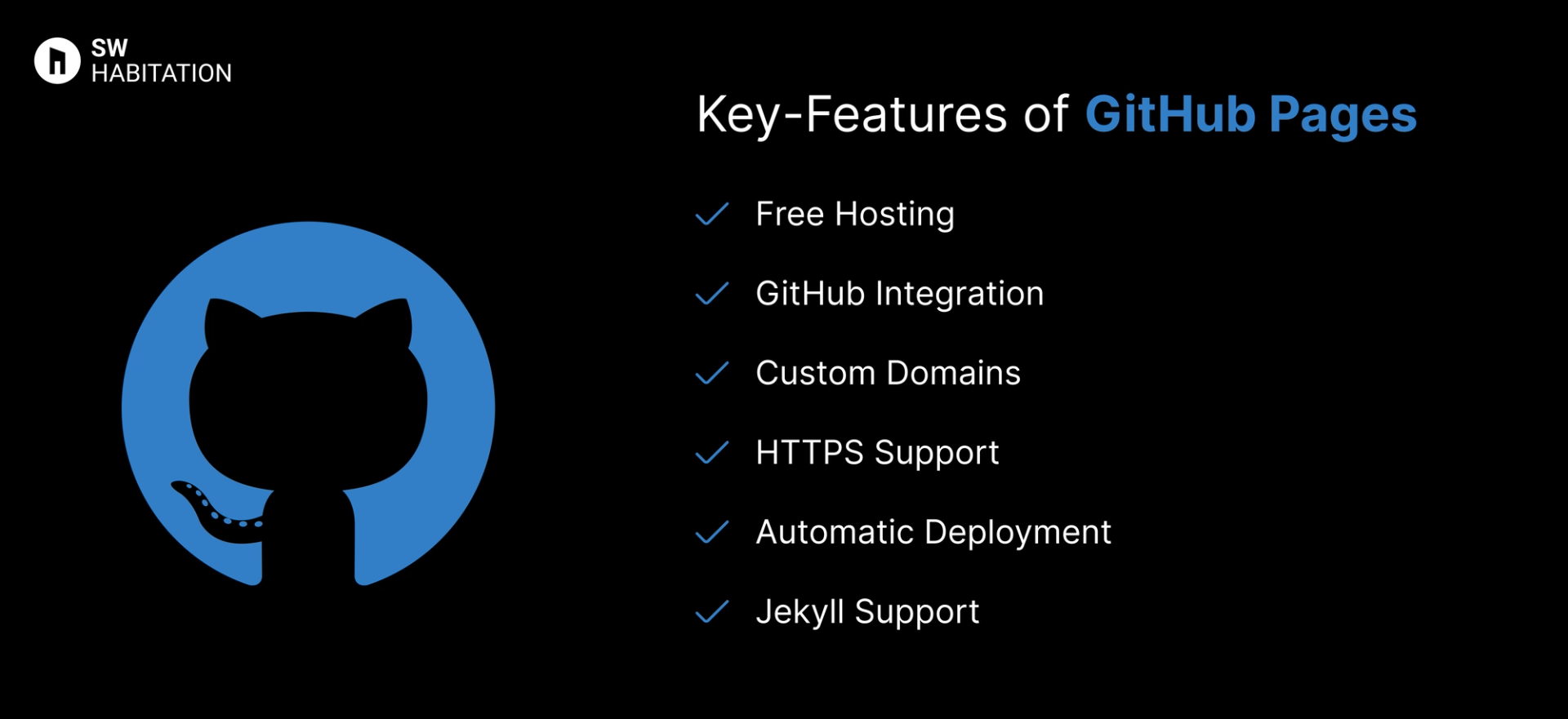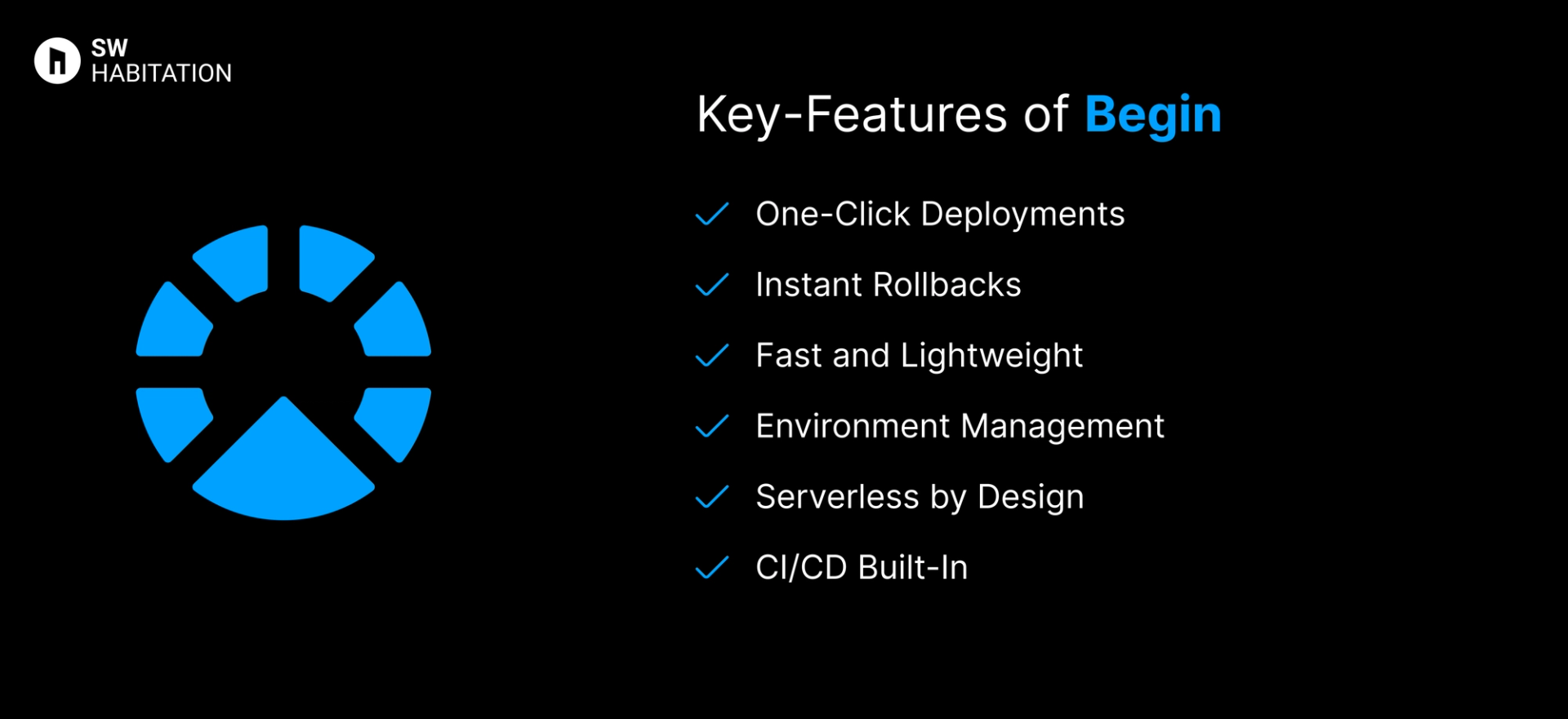GitHub Pages vs. Begin

GitHub Pages

Begin
You know when you’ve finished building your website and just want to get it online without dealing with all the techy stuff? That’s where deployment platforms help. They make it super easy to put your site live, just connect your code, click a button, and it’s up and running. No need to worry about servers or complicated setups.
They also take care of the important things like speed, security, and updates in the background. So while they handle the heavy stuff, you can focus on making your website look good and work great. It's simple, right?
What is GitHub Pages ?
GitHub Pages is a static site hosting service directly integrated with GitHub. It allows you to serve static content like HTML, CSS, and JavaScript straight from your GitHub repository. You can automatically deploy sites by pushing code to specific branches, making it a hassle-free option for developers of all levels.
Key Features of GitHub Pages


- Jekyll Support: Built-in support for Jekyll static site generator.
- Automatic Deployment: Push to the main branch, and your site is live.
- Free Hosting: No cost, no catch.
- Custom Domains: Use your own domain name.
- HTTPS Support: Free SSL certificates for secure browsing.
- GitHub Integration: Deploy directly from your repository.
Advantages of GitHub Pages
- Great for Open Source: Ideal for documentation and project showcases.
- Custom Domains: Easily configure your own domain.
- Easy Setup: Simple integration with GitHub repositories.
- Automatic Deployment: Deploy directly by pushing changes.
- Free of Charge: No hosting fees, ever.
Disadvantages of GitHub Pages
- No Built-in CI/CD: Limited automation compared to other platforms.
- Static Content Only: No server-side logic or databases.
- Repo Visibility: Free plans require public repositories.
- Limited Customization: Not as feature-rich as other platforms.
What is Begin?
Begin is a serverless deployment platform that focuses on simplicity and speed. It’s built on top of Architect, a framework for building serverless applications on AWS. Begin abstracts away the complexities of AWS, letting developers focus on writing code and shipping features. It’s particularly popular for deploying JAMstack apps, APIs, and other serverless projects.
Key Features of Begin


- One-Click Deployments: Push to GitHub, and Begin takes care of the rest.
- Instant Rollbacks: Easily roll back to previous versions if needed.
- Fast and Lightweight: Minimal configuration required, optimized for quick deployments.
- Environment Management: Separate environments for development, staging, and production.
- Serverless by Design: Built on AWS Lambda, making scaling automatic.
- CI/CD Built-In: Every GitHub push triggers a deployment automatically.
Advantages of Begin
- Instant Rollbacks: Fix mistakes fast with one-click rollbacks.
- Environment Management: Separate dev, staging, and production environments keep things organized.
- Built-in CI/CD: No extra setup — every GitHub push deploys automatically.
- Serverless Scaling: No need to manage servers; Begin handles it with AWS Lambda.
- Super Simple Deployment: Push to GitHub, and your app goes live.
Disadvantages of Begin
- Less Flexibility for Large Apps: Great for small to medium projects, but large-scale apps might need more control.
- Small Community: Not as widely adopted as platforms like Vercel or Netlify, so finding resources and community support can be tricky.
- Tied to AWS: Under the hood, it uses AWS — so if you’re not a fan, this might not be for you.
- Limited Customization: Advanced users might feel restricted by the simplicity.
Comparison Between GitHub Pages vs Begin
Use Cases of GitHub Pages
- Project Documentation: Ideal for open-source project documentation.
- Learning Projects: Great for practicing web development and deployment.
- Blogs and Static Sites: Pair with static site generators like Jekyll or Hugo.
- Personal Projects and Portfolios: Quick, free hosting for personal websites.
Use Cases of Begin
- Continuous Deployment: Automatic deployments from GitHub keep your workflow smooth.
- Serverless Apps: Built-in support for AWS Lambda makes it a breeze for serverless backends.
- Quick Prototyping: Rapid deployments make it ideal for trying out new ideas or building MVPs.
- JAMstack Projects: Perfect for deploying static sites with dynamic content via APIs.
Other Resources
Conclusion
Deployment platforms are a total game changer if you’re looking to launch your website quickly, reliably, and without any trouble. Whether it’s a personal portfolio, a startup site, or a growing business platform, they handle the technical heavy lifting like hosting, security, and scalability so you can stay focused on building great experiences for your users.
You’re not boxed into a single approach. Most platforms integrate smoothly with the tools and frameworks you already love, letting you deploy directly from your Git repository, preview updates, and roll back with ease. With lightning-fast performance and dependable uptime, deployment platforms simplify the path from code to production. Pick the one that aligns with your workflow, and you’re all set to launch with confidence 🚀
Frequently asked questions
Is GitHub Pages free to use?
Yes, It’s completely free for public repositories, with no hosting fees. You can also host private repositories with GitHub Pro or a paid plan.
What kind of sites can I host on GitHub Pages?
Only static sites like portfolios, blogs, documentation, or landing pages. It doesn’t support server-side code like PHP or Node.js.
Does GitHub Pages support HTTPS?
Yes, It automatically provides HTTPS support, even for custom domains via Let’s Encrypt.
Is Begin good for teams?
Yes, Begin supports team workflows, environments (staging, production), and easy collaboration right out of the box.
Can I use custom domains with Begin?
Custom domains with SSL are built-in, no extra config needed.
Does Begin use AWS under the hood?
Yes, Begin runs on AWS Lambda, DynamoDB, and S3, but you don’t need to configure any of it manually.
What makes Begin unique?
Begin is all about developer speed. It abstracts away AWS complexity and gives you instant deploys, serverless functions, and data—all with a simple Git-based workflow.
